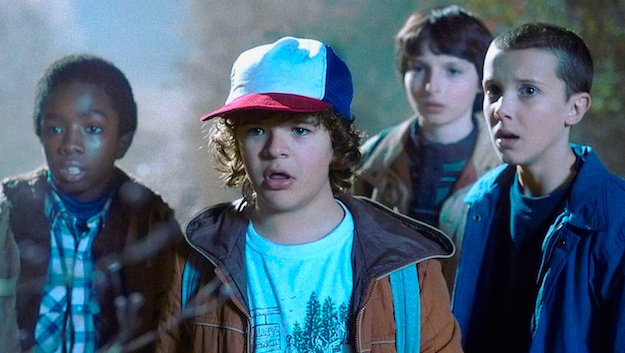The second season of Stranger Things, Netflix’s critically acclaimed and universally beloved series is just a few short days away. Set to air on October 27, just in time for Halloween, the upcoming season promises to double down on all the factors that made the first season so popular, which is to say we can expect a steady dose of 80s nostalgia masterfully blended with compelling characters and a mysterious sci-fi themed story line. As one of the more on-point reviews of the show mentioned a few months back, Stranger Things doesn’t just reference 80s movies. It captures how it feels to watch them.”
One of the more interesting things about Stranger Things is that its popularity managed to span the globe, an impressive feat that not every hit show manages to achieve. What makes Stranger Things’ global popularity even more intriguing is that the show, at least on the surface, isn’t something that one might imagine would translate so easily into other languages.
To this point, Wired has a fascinating piece up which details the process Netflix uses to ensure that shows like Stranger Things is as compelling to viewers in the U.S. as it is to viewers in, say, Macedonia. While translating dialogue from a politically oriented show like House of Cards may be straight forward, trying to find suitable translations for words like “Demogorgon” and “The Upside Down” is far more challenging.
That means the creation of a Key Names and Phrases tool, a sprawling spreadsheet in which teams of freelancers and vendors input translations in the name of consistency. Does the show include a fictional location? A catchphrase? A sci-fi item that has no real-world corollary? All those things go in the KNP, allowing Netflix to know how they read in Greek, Spanish, Swedish, Vietnamese, and so on.
…
“It’s a really deep dive into what are the elements of the story, what are the specifics of the story, that we need to make sure we are translating the same way that things were translated, say, 30 years ago,” says Denny Sheehan, the director of Netflix’s content localization and quality control efforts. “We compile all of that into essentially a show bible, and we give that to all of our translators, all of our dub studios, so they can reference that.”
That Netflix would devote so much time to such an endeavor as culturally-aware translations isn’t all that surprising given the company’s efforts to expand its global reach and boost its subscriber base. The last thing the company wants is to deliver a hit show without the ability to cross borders due to shoddy or lazy translations. What’s more, the piece reveals that Netflix takes great care to ensure that the voice actors it uses when dubbing shows in other languages are able to capture the vibe of the show’s actual actors, a strategy meant to ensure that the tone of the original remains consistent no matter how viewers choose to consume it.
If you haven’t seen it yet, here’s a trailer for the upcoming second season of Stranger Things.








